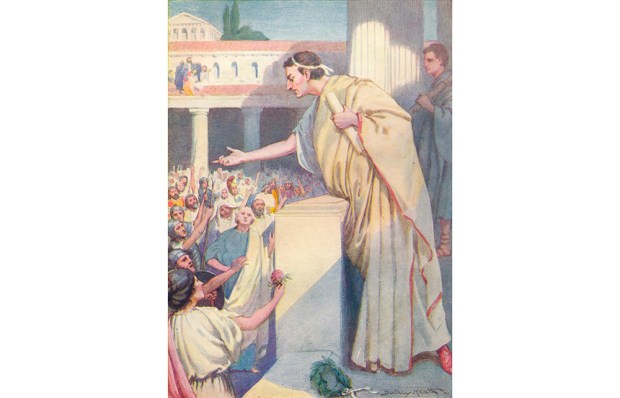The 5th century bc Athenian historian Thucydides proposed that the driving force behind interstate relations was power and fear. But the soldier-essayist Xenophon (d. 354 bc) thought that humiliation, of the sort that the EU recently heaped on Mrs May, lay at the heart of the problem.
In his Cyropaedia, Xenophon wrote an extended essay on the achievements of the Persian King Cyrus the Great (d. 530 bc), founder of a huge empire stretching from Turkey to India. In it, Xenophon invented a conversation between the experienced Tigranes, future king of Armenia, and the young Cyrus on the subject of foreign domination. Tigranes pointed out that problems between states arose out of men’s habit of holding states in contempt (hubris) either because they were so weak or one’s own state was so strong. But in the event of conflict, responding to hubris with hubris was simply to ensure that nothing changed. The secret of conflict resolution was to ensure that one did not so humiliate the enemy as to guarantee that he would seek revenge at the earliest opportunity.
Tigranes took as an example a situation where one had defeated a hubristic enemy in battle. First, he said, one must emphasise one’s military superiority by imposing tight control over them. But then one must demonstrate moral superiority too. The key to that in the ancient world was doing other people favours, even if they did not ‘deserve’ them. That was the way to resolve the conflict because it showed good will, and opened the way for a reciprocal show of good will. Such reciprocity generated a relationship which could form the basis of a long-lasting friendship. There was, however, one condition: the benefactions going from one to the other and back again must be broadly equal: it was only a level playing field that kept the relationship growing.
One would have thought the principle of quid pro quo should equally resolve a conflict in a negotiation. But it suits the EU humiliatingly to demand our quids in what is otherwise a no quo area.
Got something to add? Join the discussion and comment below.
Get 10 issues for just $10
Subscribe to The Spectator Australia today for the next 10 magazine issues, plus full online access, for just $10.
You might disagree with half of it, but you’ll enjoy reading all of it. Try your first month for free, then just $2 a week for the remainder of your first year.













Comments
Don't miss out
Join the conversation with other Spectator Australia readers. Subscribe to leave a comment.
SUBSCRIBEAlready a subscriber? Log in